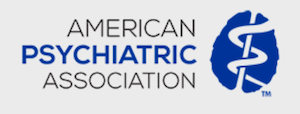Article
Internet-Based Cognitive Behavior Therapy Found to Be Effective
Author(s):
Cognitive behavior therapy is effective when delivered online.

A new meta-analysis presented on the opening day of the Annual Meeting of the American Psychiatric Association in San Diego concluded that cognitive behavior therapy (CBT) is effective for treating adult patients with depression when delivered online.
CBT is a type of talk therapy and, as one of the main interventions used to treat depression, has been shown to be effective in treating adult patients with mild to moderate forms of the disorder. However, cost, access, and perceived stigma of receiving mental health services are barriers that prevent many patients from accessing these services.
It is thought that delivering CBT over the internet (iCBT) may address some of these barriers. The researchers studied whether adult patients with depressive symptoms experienced a reduction in their symptoms as a result of accessing CBT over the internet.
iCBT programs are, in essence, self-help or self-study modalities that often include text and/or audio files and videos. Some iCBT programs are designed entirely this way, and do not include any human contact or support at all. Others do involve interaction with a clinical therapist in order to gain greater efficacy during the patient’s course of treatment.
A major advantage of these types of programs is that they can be accessed anytime, anywhere, as long as a patient has internet access. It is this expanded accessibility that gives iCBT its potential to reach a greater number of patients who might otherwise not seek traditional face-to-face therapy in a clinical therapist’s practice, whether due to cost, lack of access, or fear of the stigma attached to receiving mental health services.
In the study presented at APA, the team, led by Charles Koransky, MD, a psychiatric resident at the University of Maryland Medical Center, identified and reviewed 14 randomized controlled studies published between 2005 and 2015 in which iCBT was used in adult patients with depression. They found that CBT delivered via internet was effective in reducing patients’ symptoms.
They further found that iCBT was also effective in maintaining the positive effects on patients’ depressive symptoms for 6 months after therapy was concluded. They found no statistically significant difference in symptoms between studies where clinicians participated in a iCBT program and studies where iCBT treatment was rendered without clinician assistance.
The researchers, as a result, concluded that iCBT is effective in reducing the symptoms of depression and may be a viable alternative as a treatment modality for patients who are unable or reluctant to access traditional face-to-face therapy.




